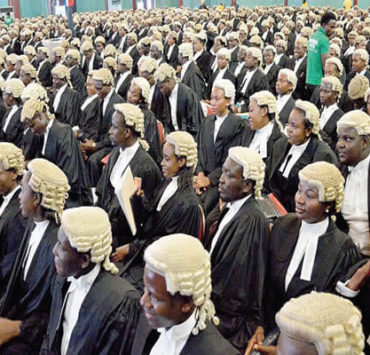Liability of Celebrities Engaging in Business Promotion

By – Omoruyi Edoigiawerie & Nonso Anyasi
As the world evolves, there has been a gradual change in the way products and services are being marketed and sold. Companies now use popular celebrities as ambassadors with the hope that the reputation of the celebrity endorser of the brand will be passed on to the products or services to outdo their competitors and attract attention for a larger share of the target market.
Celebrity endorsement is a form of advertising campaign or marketing strategy used by brands, companies, or non-profit organizations which involves celebrities using their social status or fame to promote a product, service, even to make positive impacts such as awareness on environmental or social matters. Celebrity endorsers are also called “influencers”. They play a crucial role in generating awareness for the brands and also influencing consumer choices.
While celebrity endorsers are often perceived as bridging the gap between brands and the consumer- the target audience as they create a strong and relatable emotional bond with consumers with their social status. Various companies sign contract deals with celebrities, with the hope that by using celebrities to market their products, they can accomplish a unique and relevant position in the minds of the consumers. Celebrity endorsement is increasingly being employed across various industries regardless of the product type.
The marketing and advertising industry has grown as an organized industry using innovative ideas that are designed to engage the aspirations of the viewers and form a bond with the public. Majority of brands, irrespective of the category of products/services, seek celebrities to endorse the brand and attach themselves to the reputation and familiarity associated with the celebrity, which enhances the brand’s value.
However, the most probing question is, does a celebrity ambassador have any liability in case of a breach, default or inappropriateness of a product or services? In Nigeria, the regulation which protects the rights of the consumer is the Federal Competition and Consumer Protection Act 2018 (FCCPA) which exists to protect the interest of Nigerians who buy products sold in Nigeria and patronize business services in Nigeria.
It is a growing concern that some businesses promoted on social media by some celebrities have turned out be fraudulent, with many consumers losing their hard-earned money. Although there is presently no existing comprehensive law which regulates misleading celebrity advertisement; the Advertising Practitioners Registration LFN 2004 provides some certain guidelines for Advertisement in Nigeria.
It should be clearly stated that in a Celebrity and Brand relationship, there is typically a contract between the two parties which states the terms and expectations of each party, however, usually the contract does not cast any direct liability on the endorser. The relationship between celebrity endorsers and the manufacturers is governed by contracts executed between the two parties, which in most cases, indemnify the celebrities of any liability incurred with respect to such commercials. The veracity of the claims made by the celebrities with respect to the endorsed products is immaterial and the endorsers are free to make any claim/statement as suggested by the producers notwithstanding the fact that the endorsers may not have used the product as claimed in the advertisement.
The issue of mere puff can arise in celebrities’ endorsements of products and services, because the customer places a higher value on products endorsed by celebrities It should be noted that the role of an endorser is that of a mere medium of transmission of information, and not the manufacturer of the product. Thus, in cases where the celebrity limited his liability through his endorsement contract, the bulk of liability for misleading or deceptive advertisement would fall on the product manufacturer and not the celebrity. This therefore underscores the need for celebrities to ensure that they have properly drafted legal contracts to protect them before engaging in any endorsement activity or deal.
However, it should be noted that an exclusion clause in the endorsement contract does not automatically limit or exclude the celebrity’s liability for deceptive or fraudulent advertisement in all cases. For instance, the celebrity would be jointly liable with the product manufacturer where the celebrity is entitled to a cut of the brand’s profits arising from the deceptive marketing. The Federal Trade Commission (FTC) of the United States of America has sanctioned celebrities who promoted ponzi schemes and partook of the profits flowing from such fraud. An exclusion clause would therefore not avail a celebrity who has gone beyond the traditional role of a brand influencer by participating in profit sharing.
In addition, a celebrity also owes a duty of due diligence to their fan base. A celebrity is expected to conduct proper research on the veracity of the claim of the product or services by the brand in order to protect and safeguard the interests of consumers at large. It would be irresponsible for a celebrity to swallow the claims of the manufacturer or service provider without conducting at the very least, a cursory test on the product or service to ensure that it really does what the manufacturer claims. In some jurisdictions, influencers may be liable for statements made in the course of their endorsements, notwithstanding that they were reading from a script prepared by the manufacturer of the product or service owner. This therefore imposes a duty on the celebrity influencer to carry out independent investigations of their own before endorsing such products.
Furthermore, a celebrity or influencer may also expose themselves to liability where they continue to engage in the influencing activities despite receiving numerous consumer complaints about that falsity of claims made in the endorsement. It is therefore necessary for celebrities to be alert to consumer reviews arising from their endorsement. For instance, a celebrity would expose himself to liability where he posts a video on his Instagram Page and receives numerous comments on the social media pages about the fraudulent or harmful nature of the product or service, yet still goes ahead to post more videos or promotional materials.
It is important to note that the Federal Competition and Consumer Protection Commission (FCCPC) was established to, among other things, review economic activities in Nigeria to identify anti-competitive, anti-consumer protection and restrictive practices which may adversely affect the economic interest of consumers, and also to eliminate anti-competitive agreements, misleading unfair, deceptive or unconscionable marketing trading and business practices pursuant to Section 17 of the Federal Competition and Consumer Protection Act 2018. Hence, where a celebrity or influencer engages in deceptive and misleading endorsement, the FCCPC can exercise its regulatory and disciplinary jurisdiction over both the manufacturer/service owner and the celebrity engaging in the endorsement. This is because the endorsement itself is a marketing practice. Therefore, celebrity endorsement deals should not be taken lightly by both parties as an oversight on either part can lead to dire consequences for both the manufacturer/service provider on the one hand and the celebrity on the other hand.
Hence, both parties must ensure that the terms of the endorsement deal are contained in a formal contract. Both parties should also seek quality legal advice from their respective lawyers before signing any contract. The lawyers representing the celebrities should insist on detailed representations from the brands in terms of product quality as well as compliance with product advertisement related regulations. Celebrities should also include robust indemnity provisions in the contract to cover the potential penalties and legal costs celebrities may incur in future.
This article is published by Edoigiawerie & Company LP, a full-service law firm offering bespoke legal services with a focus on startups, established businesses and upscale private clients in Nigeria. The content of this article is intended to provide a general guide to the subject matter. Specialist advice should be sought about your specific circumstances. Our firm can be reached by email at hello@uyilaw.com
Lawyard is a legal media and services platform that provides enlightenment and access to legal services to members of the public (individuals and businesses) while also availing lawyers of needed information on new trends and resources in various areas of legal practice.














